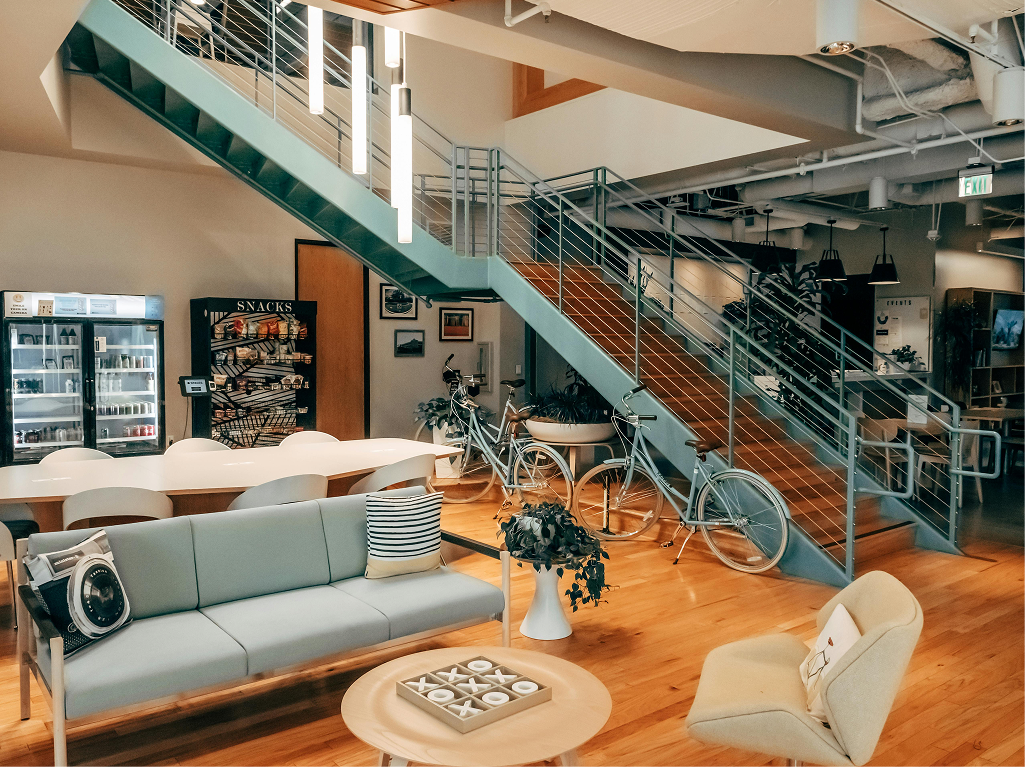Index
Receive our newsletter
Converting a commercial space into a residential unit has gained popularity in recent years, especially in cities where residential space is limited, and demand is high. This process can be a great option to repurpose unused commercial spaces and transform them into homes. However, it’s not a simple task: it requires meeting various regulations, obtaining specific permits and ensuring that the change of use is allowed by the municipality. Below, we’ll explain step by step how to convert a commercial space into a residential unit and the necessary permits and procedures you’ll need.
Is it possible to convert a commercial space into a residential unit?
The first question many people ask is whether it’s really possible to convert a commercial space into a home. The answer is yes, but it depends on several factors. Each municipality has its own regulations and zoning rules governing these conversions, so before proceeding with any changes, it’s crucial to consult local zoning laws and verify whether the property can legally be used as a residential space in that area.
To determine if the conversion is feasible, pay attention to the following points:
- Land classification: verify whether the area where the commercial space is located allows for residential use.
- General Urban Development Plan (PGOU): each city has its own plan that dictates the permitted uses for a property. This document will be key in determining whether you can proceed with the conversion.
- Municipal ordinances: check local regulations that could affect the change of use, such as rules on ventilation, lighting, or access.
Technical requirements for converting a commercial space into a home
Once you’ve determined that the change of use is possible, the next step is to ensure the space meets the technical requirements for habitation. These requirements are outlined by local regulations and typically include:
- Minimum ceiling height: most regulations require a minimum ceiling height to ensure the comfort of future residents.
- Minimum surface area: some municipalities set a minimum surface area that a residential unit must meet to be considered habitable.
- Ventilation and lighting: it’s essential that the property has access to natural light and proper ventilation, which can be a challenge for commercial spaces that may lack windows or have limited light.
- Adequate access: the entrance to the space must comply with accessibility standards for homes, such as barrier-free access for individuals with mobility challenges.
- Utilities and sanitation: the space must be connected to water, electricity, and sewage systems or be able to connect to them.
Required permits to convert a commercial space into a residential unit
To convert a commercial space into a residential unit, you’ll need to obtain a series of permits and licenses to ensure the change of use is legal. Below are the most important permits you’ll need:
- Change of use permit: this is the primary permit granted by the municipality that allows you to modify the use of the property. This process may vary depending on the municipality, but typically involves submitting a technical project, overseen by an architect or certified technician, who will confirm that the space meets the requirements for residential use.
- Construction permit (if necessary): in many cases, converting a commercial space into a home requires renovations. If this is the case, you’ll likely need to apply for a construction permit as well.
- Certificate of habitability: once the transformation is complete, you’ll need a certificate of habitability that confirms the property meets minimum living standards. This certificate is essential for registering the property as a residential unit and connecting utilities.
- Registration with the Property Registry: after obtaining the necessary permits and certifications, the new use of the property must be recorded with the Property Registry to reflect that it is now classified as a residential unit rather than a commercial space.
Costs associated with the change of use
It’s important to consider the costs involved in converting a commercial space into a residential unit, as the process can be expensive. Some of the most common costs include:
- Professional fees: architects, surveyors, and other professionals will need to be involved in the process.
- Municipal fees: local governments often charge fees for permit and license applications.
- Renovation costs: the necessary renovations to make the space habitable will vary depending on the condition of the commercial space and the required standards.
- Registration costs: once the permits are obtained, registering the change of use with the Property Registry can incur additional costs.
How to speed up the process
The process of converting a commercial space into a residential unit can be lengthy and, in some cases, complicated. Here are some tips to help speed it up:
- Consult professionals early on: hiring an architect or legal advisor experienced in changes of use from the start can help you avoid mistakes and save time.
- Get informed about local regulations: every municipality has its own specific requirements, so being informed from the beginning will reduce the risk of your application being denied.
- Prepare all necessary documents: having all the required documents ready (plans, project details, etc.) will prevent delays when submitting applications to the municipality.
Converting a commercial space into a residential unit is a process that, although it requires time, paperwork, and an initial investment, can be a highly profitable and functional option, especially in areas where residential space is limited. The most important thing is to ensure that you meet all technical and legal requirements and obtain the necessary permits to avoid future problems. Changing a commercial space into a home can provide not only a new business opportunity but also a housing solution tailored to your needs.









